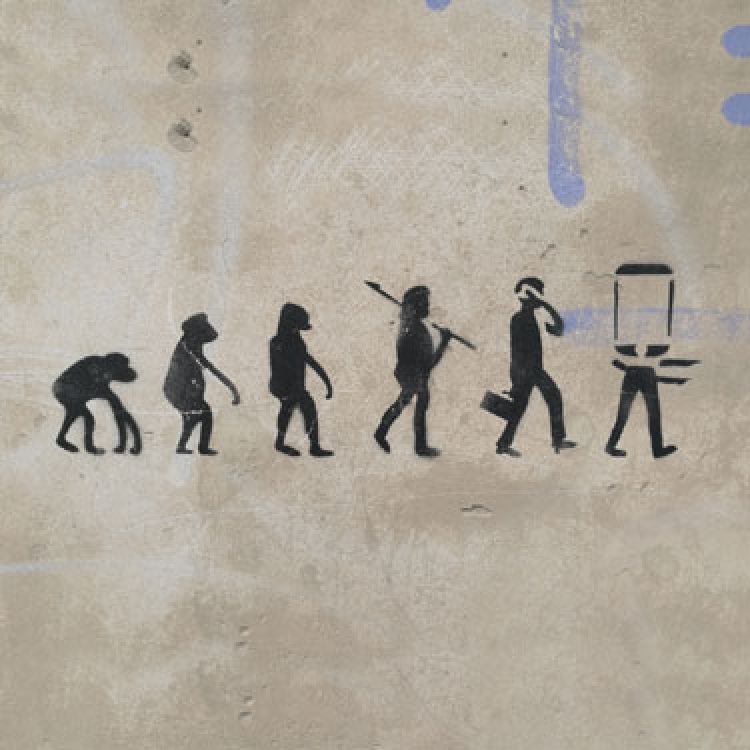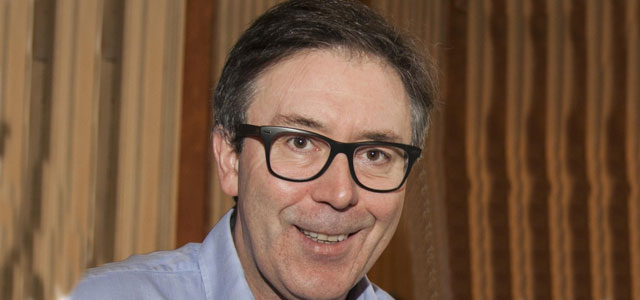From naked ape to digital prince

Where we have come from, the opportunities and risks we face and where we are heading. James Arroyo of the Ditchley Foundation takes a romp through two million years of evolution and twenty years of digital revolution.
The message of Desmond Morris' seminal book, The Naked Ape, was never to forget biology as a driver of human behaviour. No matter how sophisticated our technology we remain primates driven by deep impulses on sex, power and our place in the pecking order. Another enduring trend is that things may have started out simple, but they can only get ever more complex. We are on a journey, not necessarily planned or pre-ordained but inevitable, from one cell to many; from bands to tribes to nations to multinational alliances; from one or two images glimpsed in a human lifetime to YouTube; from one or two handmade artefacts in a home, to the world of things available through Amazon in the click of a mouse.
Our human impulse is always to open the next door in the corridor even if we have been told not to. If it can be invented, then it will be. As the writer Victor Frankl, imprisoned at Auschwitz, wrote: "It is a peculiarity of man that he can only live by looking to the future."
We might still be primates, but we are primates looking to the stars and this creates strange twists in our behaviour and motivation, flickering in the blink of an eye from base impulse to lofty aspiration and back. This makes risk management intrinsically difficult. We never know who we are dealing with at any moment.
We now face big challenges (and opportunities), many of which are not surmountable with current levels of technology and human coordination across the globe. The globalisation of trade and the movement of labour is challenging democracies and traditional political parties. Population growth will demand new solutions on food and water security. The oceans face irreversible damage even if global warming is kept to an increase of two degrees. And tackling climate change is going to need a commitment to coordinated multilateral action that is difficult to imagine in today's nationalistic atmosphere. The history-driven tilt of the world towards the West is flattening and the East is rising in influence of power.
A number of technological trends offer both solutions and new dilemmas. Connectedness has always been a human drive and now technologically turbocharged it shows no signs of slowing. The Internet of Things and autonomy of objects will take this to a new level and make better cyber-security essential. Virtualisation means increasingly that our technology is becoming invisible and embedded in our environment. Even virtual places like websites are now beginning to be virtualised with information atomised and made available via Bots and other AI interfaces in the course of our interactions with technology.
General AI, in the sense of general human-like intelligence, remains decades away but narrow AI threatens to transform and replace many areas of work, both in blue collar and white-collar roles. Cyber security itself looks set to be one of the areas dominated by AI, with a country's prowess at AI potentially determining its economic and political influence. The pace of progress on bioengineering may turn out to be the most influential trend of all, with the advances in gene editing through Crispr/Cas9 technologies making both new materials and new gene therapies available. Quantum computing is making progress too and opening up the prospect of new computing capabilities at unprecedented speed and scale.
What is most exciting and most potentially dangerous is the potential combination of these new technologies to accelerate each other. Most fundamental is the intensification of human connectedness and social networks. This will see innovation and change driven at ever greater pace on the one hand as ideas are exchanged ever more rapidly between contacts; and the increasing re-tribalisation of society (its breakdown into self-validating smaller units and echo chambers) on the other.
At the same time, we will remain very much our human selves - naked apes driven by animal impulses; and star gazers searching for meaning in the heavens. It's going to be an interesting, fast accelerating - and risky - journey. But one we need to take if we are going to develop the technology we need to handle the global challenges our development to date has already set in motion.

James Arroyo is director of the Ditchley Foundation. This article is based on a talk he gave in July to Airmic members taking part in the Airmic and XL Catlin Business Excellence programme.
Standing at the crossroads of government, technology, and finance, Ditchley brings together influential people from around the world in order to have impact on issues of global concern (www.ditchley.com)
